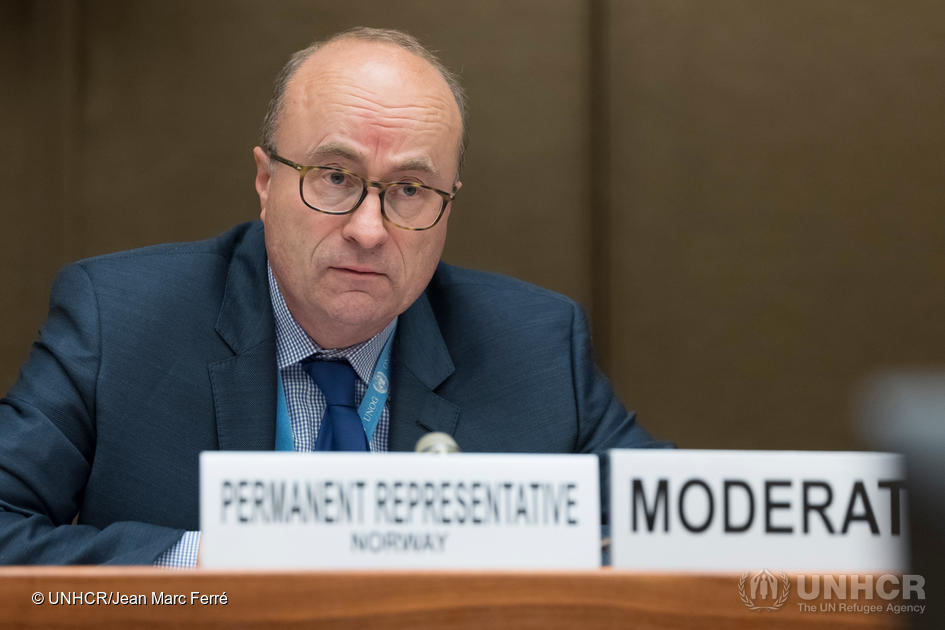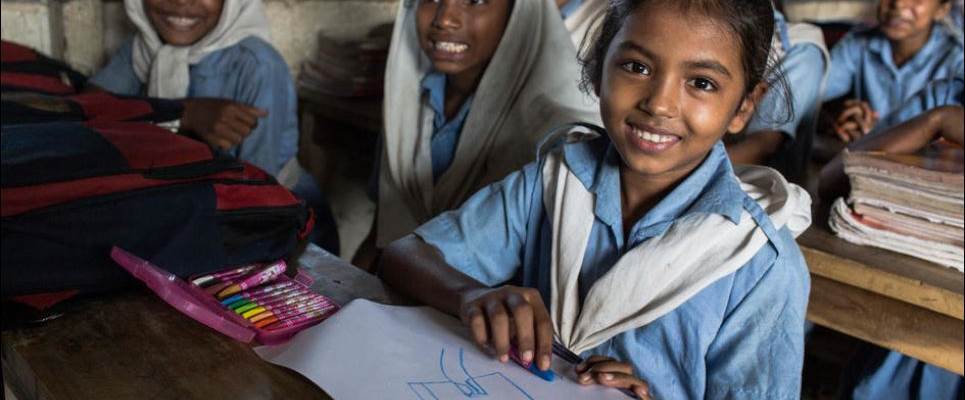The Norwegian government has made education a top priority in development and humanitarian assistance. Moderating a panel that highlights the importance of education for refugees and displaced people was therefore both a privilege and a priority for Ambassador Brattskar. The goal is to ensure that investment in education is an essential part of the Programme of Action of the new Global Compact for Refugees.
The discussion benefited from the rich contributions by all the panellists: Youth Delegate Ms. Safia Ibrahimkhel; Senior Policy Advisor of the Global Partnership for Education Secretariat Mr. Jesper Andersen; World Bank Focal Point on the Global Compact on Refugees, Ms. Caroline Sergeant; and Ms. Zeinab Adam, Senior Advisor for the Education Cannot Wait fund.
“Education is part of a long-term development strategy. In emergency situations, where lives are at stake, it is natural and right for donors to prioritise short-term and life-saving measures. All too often, however, we see that this causes an attention gap, leaving education in emergencies critically underfunded,” said Mr. Brattskar. This happens despite the fact that parents and children affected by crisis often list access to education among their primary needs.

The message echoed in the audience and amongst the panellists. Ms. Sergeant, the focal point and bridge between the World Bank and the UNHCR in developing the Global Compact on Refugees, highlighted that education and learning contributes to stabilization in the countries where refugees come from. Educating refugees can help us avoid that the children of refugees have to go through the same thing as their parent generation. Education fosters self-reliance, builds resilience, and reduces aid dependency among refugees themselves.
“They’re the new leaders. They’re the ones that can make the difference for the refugees,” Ms. Sergeant said.
The Youth Delegates participating at the Protection Dialogue further highlighted the important point that education is itself a lifesaving protection tool and a basic human right. Moreover, it promotes mutual respect and improves integration.
“Refugees need a practical and fast track to integrate into new societies. This begins with quality education,” underlined Ms. Ibrahimkhel.
Norway channels more than 8% of the humanitarian budget to education and provides significant development support to education in countries affected by crisis and conflict. The aim is to ensure that no one is left behind, and that swift and adequate investment in quality education in emergencies becomes the new normal.
Read about Norway’s humanitarian and development efforts to ensure education for all here.
Read about the Global Compact for Refugees here.
